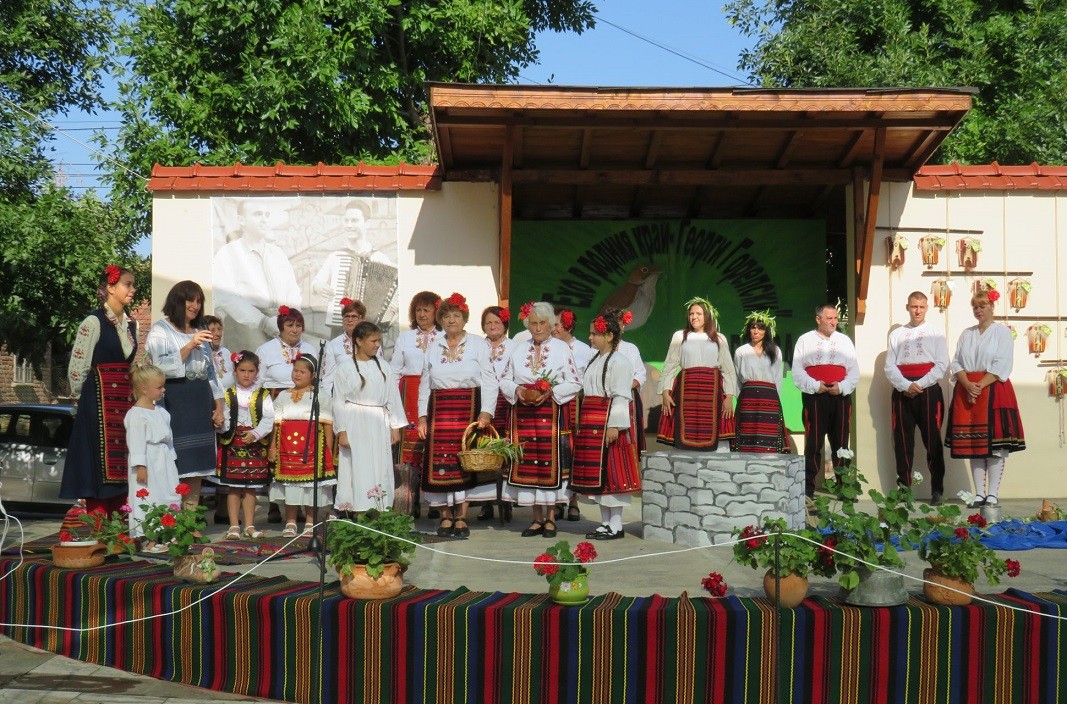May 25 is marked as Spasovden, or Ascension Day. It is a moveable feast, always falling on Thursday 39 days after the first day of Easter. According to Christian belief, on the 40th day Jesus Christ ascended to heaven which marked the end of his earthly life. According to popular belief, the ill must spend the night before Spasovden next to a spring with curative waters, and they shall be healed.

According to a legend from Turnava, one of the oldest villages in Byala Slatina municipality, there is a spring with healing waters around 4 kilometres from the houses. People here called the locality Lekovit Kladenets (healing well), after a legend that a blind ox entered the waters of the spring and got his eyesight back. So, on the night before Spasovden, the villagers would go to that same spot. For many years a festival was organized there in which all people from Turnava took part. People still go to this locality today though the tradition is mostly in the stories told by the older folk.

Turnava is one of the larger villages, with a population of over 2,000, and there are many children at the school and the kindergarten there. The local chitalishte (community culture club) and the local administration organize re-enactments to tell stories of times long gone by. But people still go to Lekovit Kladenets locality, especially in summer. Next to the well there is a water fountain, built in 1937, and a cross.
“The well still exists but it is difficult of access, because there is no road leading up to it, just a dirt track cutting across the fields,” says the village mayor Gabriela Ralovska:
“Traditions here are not very different from what is done on Spasovden in other parts of Bulgaria. Fraxinella blossoms on the night before, a plant also called samodivsko tsvete (nymph flower) in Bulgarian. It is picked “in the dead of night” and is put in a bowl of water. Once upon a time there were grannies who would say magical words; it was believed that by performing these rituals on Spasovden the ill would get well.
We tried to make improvements around the water fountain and the well, but it is a difficult thing. But we do take the children there to show them the place, to tell them the legends. There is one more thing to see there - a centuries-old tree, an oak, and another tree, an offshoot. I am hoping the place will be preserved as a place of legend and tradition by the people of Turnava for the generations to come.”
Translated from the Bulgarian and posted by Milena Daynova
At 04:00 Bulgarian time on October 26, 2025, we must turn our clocks back one hour. This means one more hour of sleep, but it does not eliminate the stress for the body as a result of the change in the biological schedule,..
A celebration of children’s love of books and imagination will take place on 25 October in Los Angeles, organised by the Bulgarian School “St. St. Cyril and Methodius” , according to the school’s Facebook page. The Parade of Books and Fairy Tale..
Romania renegotiates its National Recovery and Resilience Plan with the EU The European Commission has approved a new version of Romania's National Recovery and Resilience Plan, announced Minister for European Funds Dragos Păslaru, quoted by..
Minister of the Environment and Water Manol Genov has granted two centuries-old trees – each of which approximately 200 years old – protected status,..
Bulgarian compatriot Nina Vasileva-Zaneshev is one of the examples among the diaspora abroad, who give us confidence that wherever they..

+359 2 9336 661
